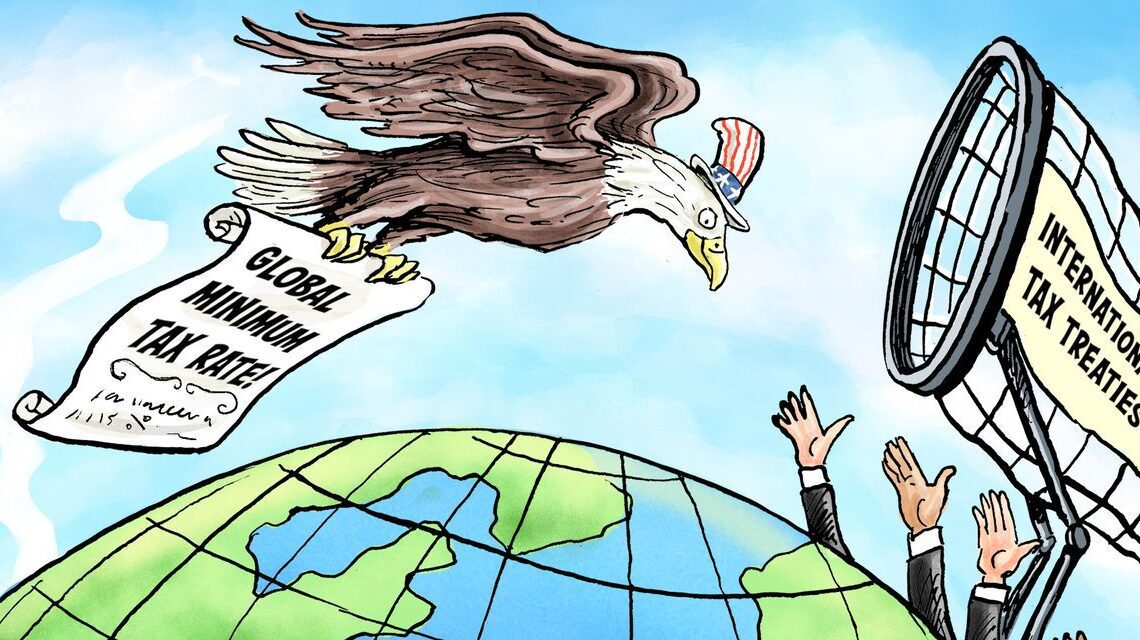Except it doesn’t. The global minimum tax deal actually gives tax havens an incentive to lower rates even further, and to grab any minimum top-up tax for themselves. Those top-up taxes—supplemental tax payments to ensure that every constituent entity of a large multinational enterprise is paying a minimum corporate tax rate of 15%—are about to set the U.S. on a collision course with its international tax treaties.
The reason for this unfortunate outcome lies in the mechanics of the new rules concerning qualified domestic minimum top-up taxes, or QDMTT.
The new global minimum tax regime—“Pillar Two” of a broader agreement—rests on two key rules. The first is an income-inclusion rule, which requires the parent companies of multinational enterprises with at least €750 million (about $815 million) in total global revenues to calculate effective tax rates for each of their overseas subsidiaries, and to make “top-up” payments to the parent’s tax authority if the effective tax rates of any of the subsidiaries are less than 15%.
The second is an under-taxed payments rule. This provides a backstop in cases when the effective tax rate in a tax jurisdiction is below the minimum rate of 15% but the income-inclusion rule hasn’t been fully applied. It allows countries to deny tax deductions to the subsidiaries of parent companies if the parent’s jurisdiction has an effective tax rate below 15% and hasn’t complied with the income-inclusion rule.
However, the latest rules agreed to by Ms. Yellen also introduced the QDMTT, under which the right to collect a top-up tax goes first to the country in which the undertaxed income is declared.
This means that tax havens with effective tax rates below the 15% minimum will be first in line to collect top-up taxes, which they might as well do—and almost certainly will do—because if they don’t, higher-tax countries will grab that top-up revenue anyway through the income-inclusion or under-taxed payments rules. It should therefore come as no surprise that three tax havens—Switzerland, Singapore and Hong Kong—already have said they are considering QDMTTs.
At the very least, QDMTT priority means that tax havens can continue to cut their corporate tax rates to attract companies below the €750 million threshold, while at the same time pre-empting other countries from collecting any top-up…
Click Here to Read the Full Original Article at RSSOpinion…

